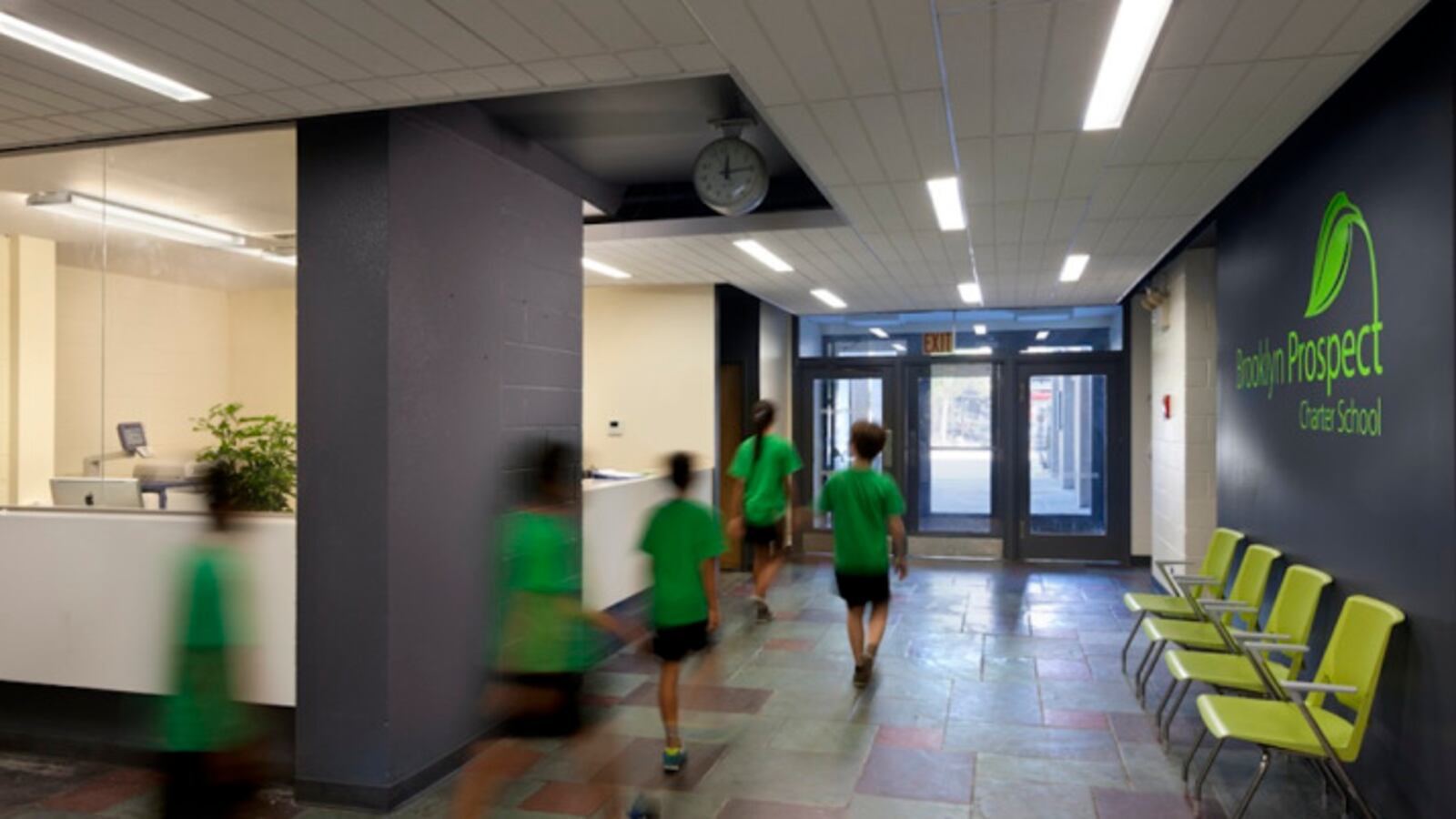Charter schools are seeking to change the narrative that they’re part of the problem when it comes to segregation in public schools.
Two New York City charter school organizations, Brooklyn Prospect and Success Academy schools, and Brooklyn’s Community Roots Charter School are part of a new coalition formed to support efforts to serve a better mix of students based on race and socioeconomic status.
The charter school movement has always been proud to declare its success at attracting large shares of poor black and Hispanic students from the country’s perennially struggling school districts. In New York City, advocates have regularly pointed out that charter schools serve a larger share of black and Hispanic students than the city average.
But that focus came under scrutiny this year, as the 50th anniversary of the U.S. Supreme Court’s Brown vs. Board of Education decision neared. Researchers said more than 70 percent of city’s charter sector was “intensely segregated” because they were consistently among the least diverse schools in New York. (“Talk about damned if you do and damned if you don’t,” James Merriman, CEO of the New York City Charter School Center, said in response.)
Advocates for increased school integration have said that charter schools could play an outsized role in efforts to integrate schools because the schools are permitted to set aside seats in their admissions lotteries for certain types of high-needs students.
The three New York City charter operators who joined the coalition have all made moves to diversify their admissions processes. Brooklyn Prospect’s two schools set aside seats for transient students who seek to enroll at their schools in the middle of the year. Community Roots Charter School, housed in one of the city’s fastest-gentrifying neighborhoods, holds seats for students who live in the nearby public housing complexes.
Last fall, Success Academy Charter School CEO Eva Moskowitz successfully took on U.S. Education Secretary Arne Duncan over a federal grant policy that prohibited her schools from setting aside seats for English language learners. Success Academy is also at the forefront of the trend of opening charter schools opening in mixed-income and high-income neighborhoods in the city.
The new coalition, called the National Coalition of Diverse Charter Schools, is made up 14 individual schools and charter operators from around the country, according to its announcement. Here it is in full:
The founding schools are pleased to announce the formation of a coalition of socioeconomically and racially diverse charter schools and supporters of such schools. By forming a network to share resources, providing technical assistance, and highlighting exemplars, the coalition supports the creation and success of socioeconomically and racially integrated charter schools. In addition, the coalition hopes to promote research on the benefits and best practices of integrated schools. “We recently had the 60th anniversary of the Brown v. Board of Education decision, but the problem of segregation persists. Charter schools need to be part of the solution,” said Jeremy Chiappetta, executive director of Blackstone Valley Prep Mayoral Academy in Rhode Island. “I believe that charter schools can be an important part of the solution to integrating our public school systems by making it a priority to enroll student bodies that reflect that full diversity of our communities,” said Sean Wilson, head of school at the International High School of New Orleans. “Research shows that socioeconomically and racially diverse schools offer valuable academic, cognitive, and social benefits for students. Diverse schools can help boost the achievement of low-income students while preparing all students for success in a 21st century economy that requires critical thinking and cultural awareness,” said Halley Potter, a researcher with The Century Foundation. The core beliefs of the Coalition are as follows: We Believe: Diverse schools provide greater opportunities for students to learn from one another. Diversity is a cost-effective method of boosting student achievement. Diverse schools promote the celebration and understanding of other cultures and viewpoints. Diverse schools invigorate and strengthen urban neighborhoods by bringing community members together. Charter schools can and should contribute to solving the historic challenge of integrating our public school system. Achieving diversity often requires deliberate efforts through recruitment, admissions policies and school design. Diverse charter schools promote equality by ensuring that students from different backgrounds have the same educational opportunities. Founding Member Schools: Blackstone Valley Prep Mayoral Academy (Central Falls, Cumberland, Lincoln, & Pawtucket, RI) Bricolage Academy of New Orleans (New Orleans, LA) Brooklyn Prospect Charter School (Brooklyn, NY) Capital City Public Charter School (Washington, DC) City Neighbors Charter School (Baltimore, MD) Community Roots Charter School (Brooklyn, NY) DSST Public Schools (Denver, CO) High Tech High (San Diego, CA) Homer A. Plessy Community School (New Orleans, LA) The International High School of New Orleans (New Orleans, LA) International School of Louisiana (New Orleans, LA) Larchmont Charter School (Los Angeles, CA) Morris Jeff Community School (New Orleans, LA) Success Academy Charter Schools (New York, NY) Advisors: Brian Beabout, The University of New Orleans Eric Grannis, Tapestry Foundation Halley Potter, The Century Foundation Heather Schwartz, Rand Corporation Please see our website www.diversecharters.org

